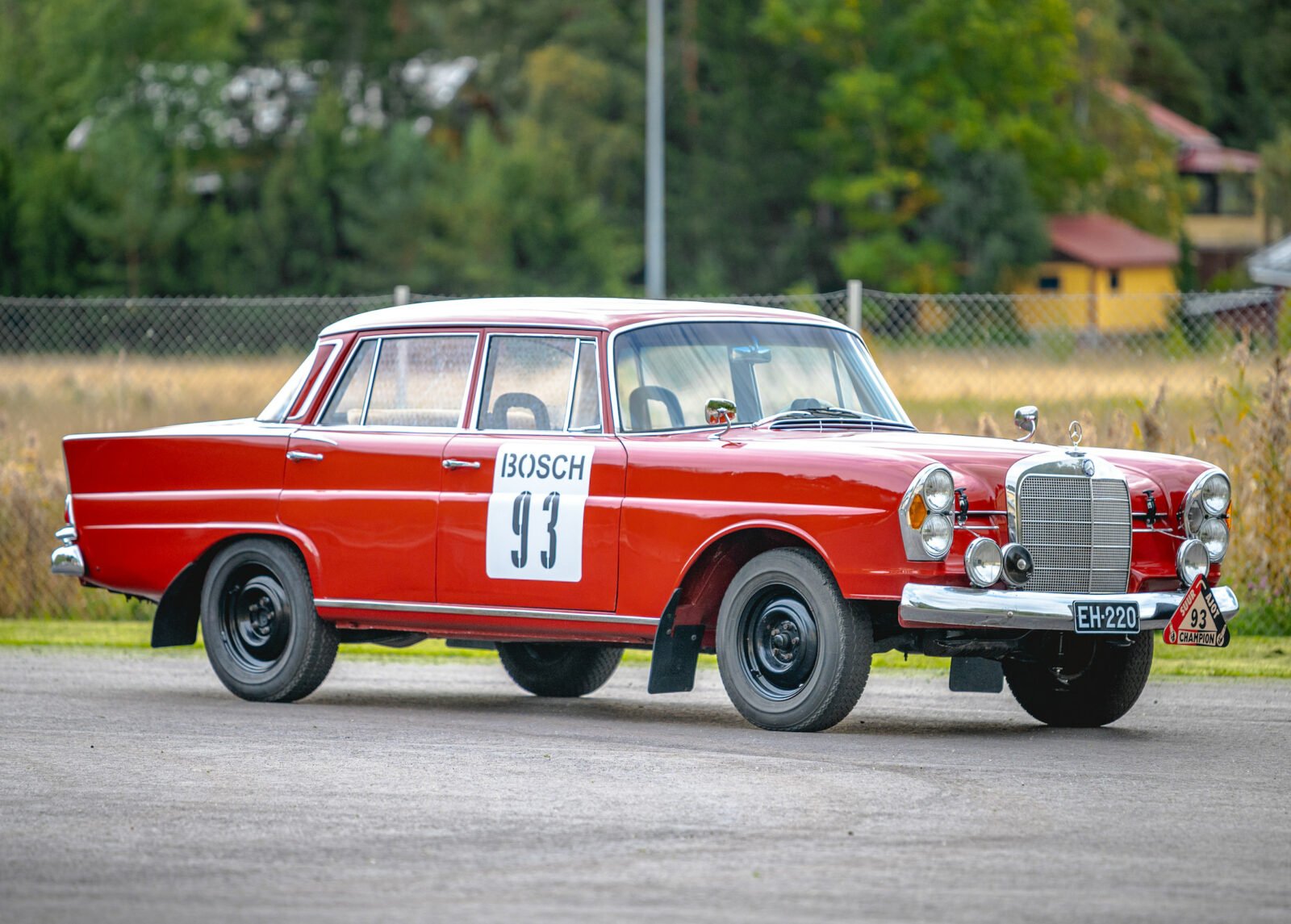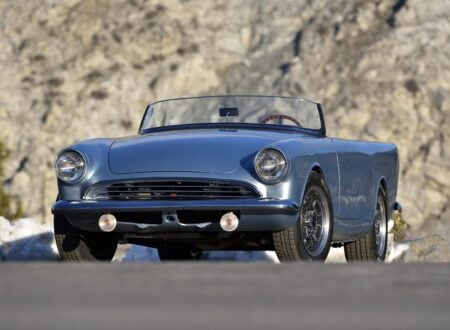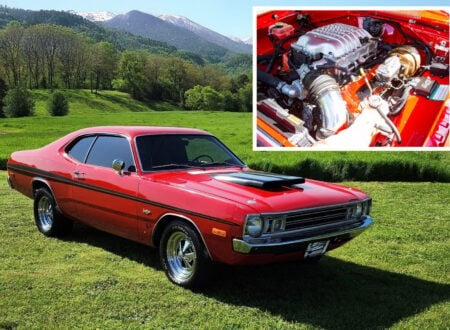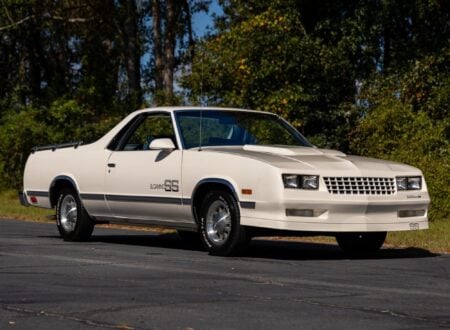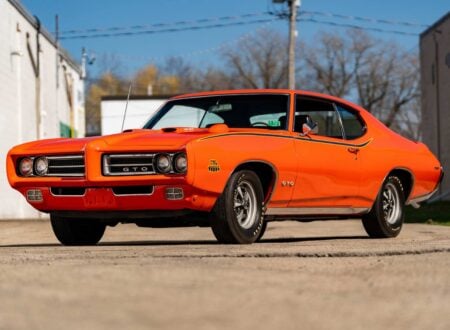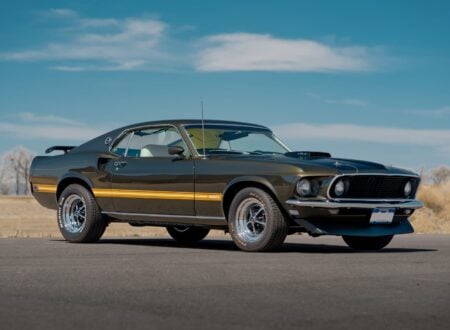The Mercedes-Benz W111 “Heckflosse” would become a remarkably successful rally car largely thanks to its indestructible design. It would win the 1960 Rallye Monte-Carlo, the 1961 Algiers-Cape Town Trans-African Rally, and the 1961 Rally of the 1000 Lakes.
The car you see here was pulled off a showroom floor and modified for rally. It was handed over to Rauno Aaltonen and his co-driver Väinö Nurmimaa who proceeded to win the 1961 Rally of the 1000 Lakes with it, beating the 59 other entrants and finishing five minutes ahead of the nearest competitor.
Fast Facts – The Mercedes-Benz W111 Heckflosse
- The Mercedes-Benz W111 was introduced in 1959 and sold in various iterations until 1971 including both four door sedan and two door coupe variants.
- The W111 series was ruggedly built, the car used the famous Mercedes-Benz build quality of the era, and importantly it introduced front and rear crumple zones for safety – a rare feature in 1959.
- With its bulky design and hefty curb weight no one expected the W111 sedan to become a successful rally car, but its toughness and solid build quality gave it an edge – it would go on to win a number of major international rallies in the early 1960s.
- The car you see here was converted into rally specification right off the dealership floor, it was then driven to a win in the 1961 Rally of the 1000 Lakes by Rauno Aaltonen before later becoming part of the collection in the Mobilia Rally Museum in Kangasala.
The Mercedes-Benz W111
In the years after WWII Mercedes launched the Mercedes-Benz W186 four-door luxury sedan and the altogether more exclusive (and expensive) Mercedes-Benz W188 two-door luxury sports tourer. Two years later in 1953 the Mercedes-Benz W120 was unveiled, perhaps better known now as the first of the “Pontons.”
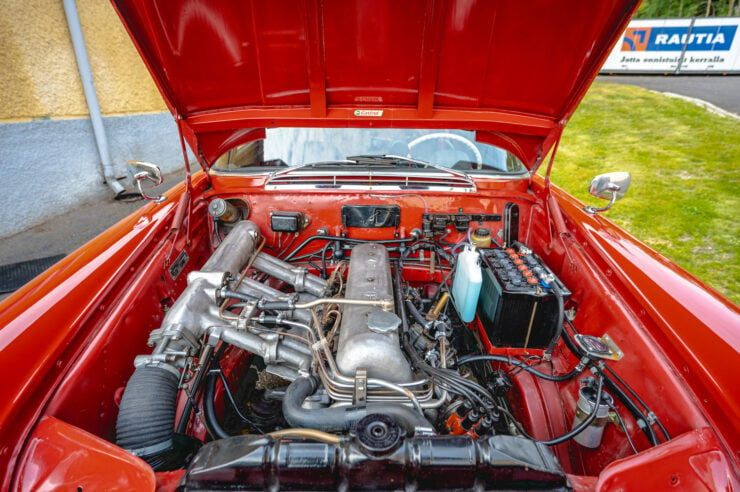

For the uninitiated, the Mercedes-Benz Pontons were a series of cars built from 1953 to 1963, the name Ponton translates as Pontoon, and it was nickname applied to the cars due to their slab sided almost pontoon-like styling. Mercedes didn’t use the nickname at all in-period.
The Pontons, beginning with the 1953 W120 are exceedingly important cars in the history of Mercedes as they were the first to use monocoque, unit construction bodies. Sales of these vehicles made up 80% of the company’s production from 1953 to 1959 when they were largely replaced with the new W111 “Heckflosse” (or “Fin Tail”) models.
The W111 featured styling that would set the tone for Mercedes well into the 1970s, with double stacked headlights framing that classic chrome Mercedes grille. The four door saloon was designed by Friedrich Geiger, the same man who had designed the pre-WWII 500K and 540K sports cars as well as the post-WWII Mercedes 300SL Gullwing.
Coupe versions of the W111 would be styled by Paul Bracq, and it would be Bracq who designed the Mercedes-Benz W113, better known today simply as the “Pagoda.”
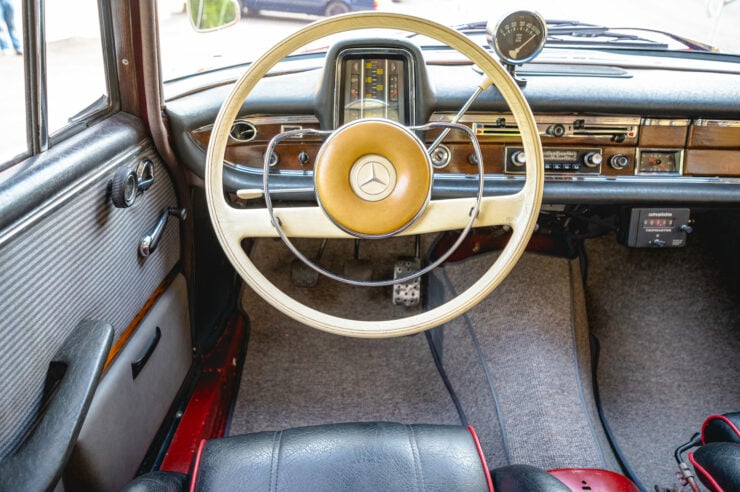

The luxurious W111 four-door saloon was luxuriously appointed, it was introduced with a 2.2 liter straight-six M127 engine producing 95 bhp in 220b, the simplest trim, with 110 bhp in the 220Sb trim level and 120 bhp in the top of the line 220SEb trim level. A number of significantly larger engines would be offered later in the production run.
The W111 cars were nicknamed “Heckflosse” for their prominent rear tail fins, a nod to the wildly popular body style that had taken the United States by storm in the 1950s – one of Mercedes most important export markets.
Over the course of the 1959 to 1971 production run over 370,000 examples of the W111 model family would be built in both four-door saloon and two-door coupe form. It would be this series of Mercedes that would help establish the company’s reputation, and make it a major player in the world’s luxury automobile sector.
The Mercedes-Benz 220SE Shown Here
The Mercedes-Benz 220 SE you see here is a car that was never originally intended to become a motorsport legend. It was built by Mercedes and shipped out to a dealer to be sold, only that dealer happened to be the father of talented Finnish rally driver Rauno Aaltonen.
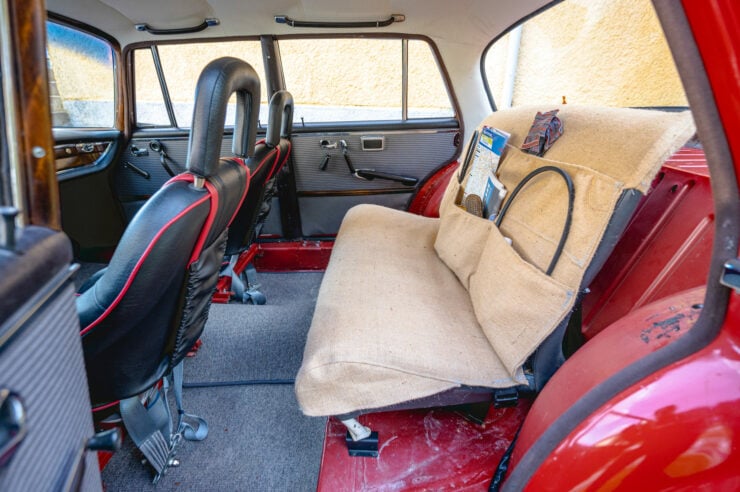

Aaltonen had started out racing speedboats before switching to motorcycles and becoming the first Fin to win a Grand Prix motorcycle racing competition. In 1960 he drove a Mercedes-Benz 220SE to a promising 7th place finish in the famous Rally of the 1000 Lakes in Finland and a year later in 1961 he was hoping to improve on his result.
Sadly, the official works rally car never materialized but Aaltonen’s Dad had a suitable 220SE on the lot. It was hastily converted to rally specification with the addition of a lightweight rear bench seat, stiffer springs front and back, a front bumper sourced from a Kaiser, and a set of eight 15 inch steel wheels from the Mercedes-Benz factory.
With co-driver Väinö Nurmimaa by his side Aaltonen would win the 1961 running of the Jyväskylän Suurajot – or Rally of the 1000 Lakes – and forever pen his name into the annals of Mercedes-Benz motorsport history.
The car would later be converted back to road specification and sold to a customer, presumably with their knowledge of its former racing success, and many years later it would end up in the Mobilia Rally Museum in Kangasala once again fitted with the rally specification kit.
The car is now due to roll across the auction block with RM Sotheby’s on the 26th of November, if you’d like to read more about it or register to bid you can visit the listing here.
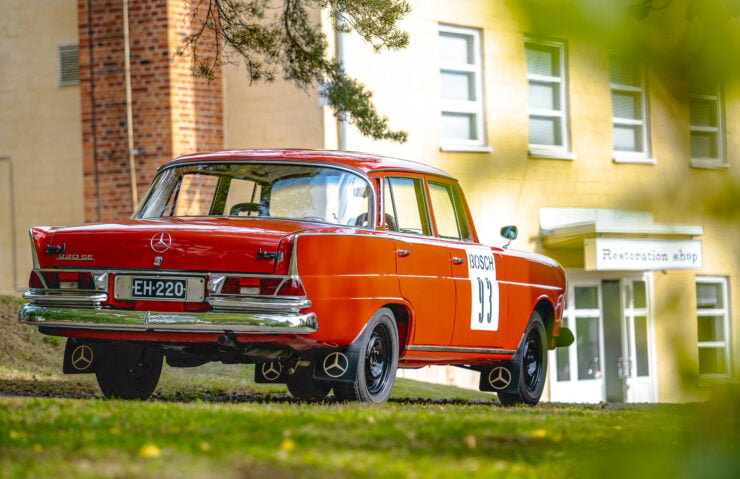
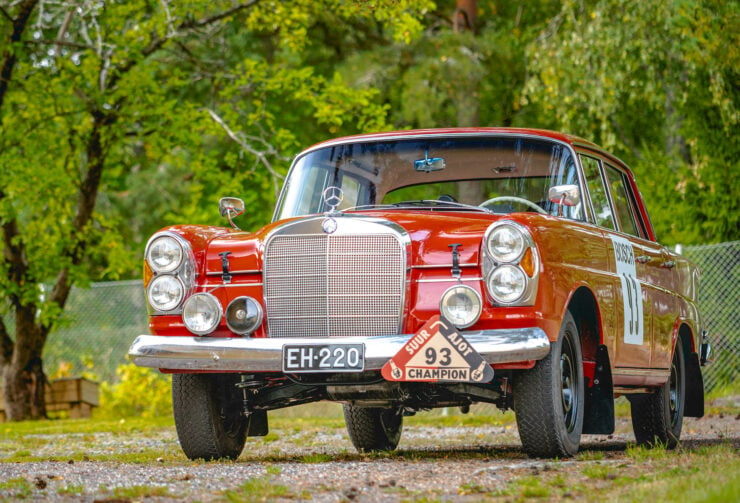
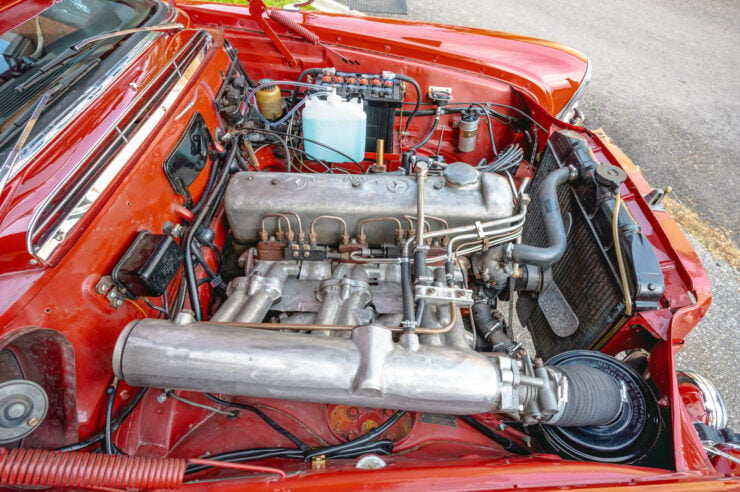
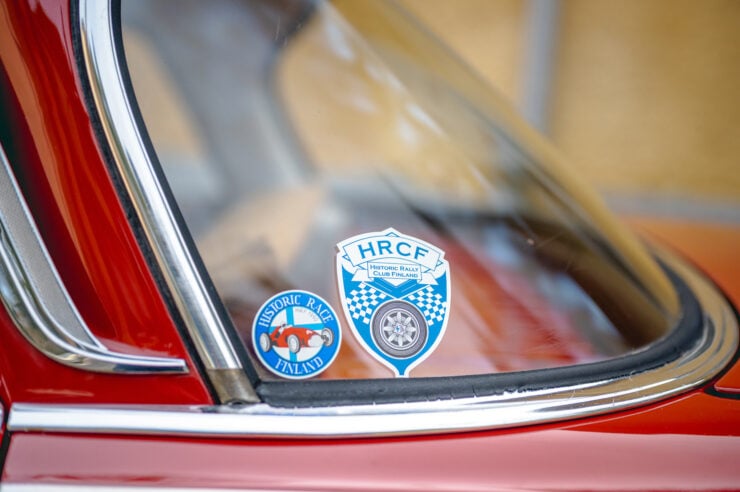
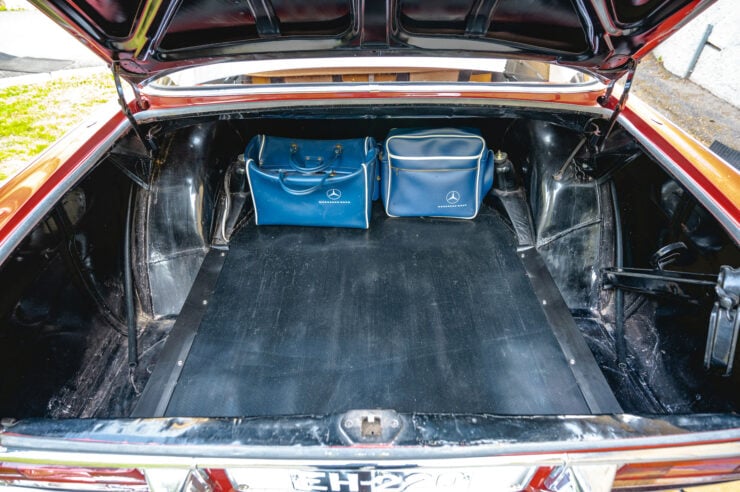
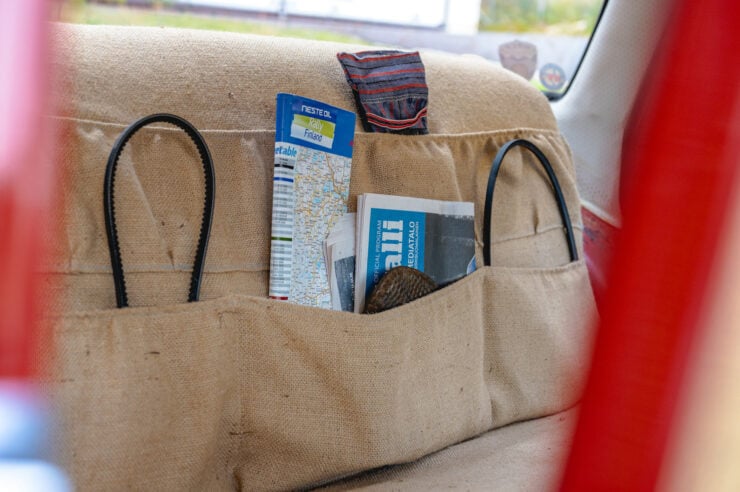
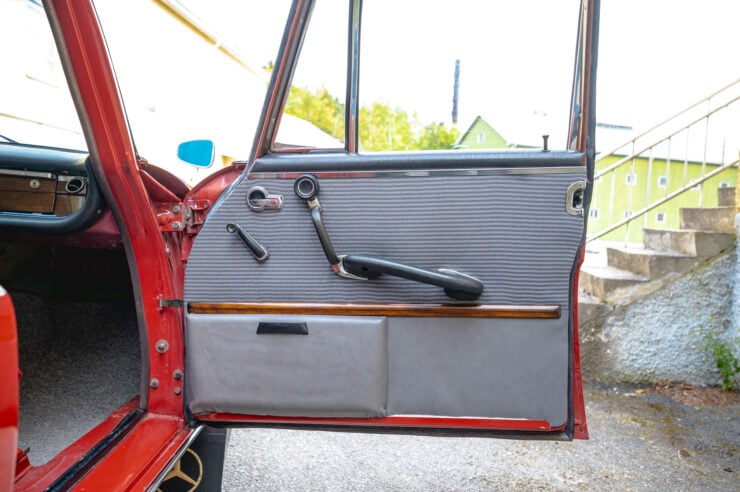
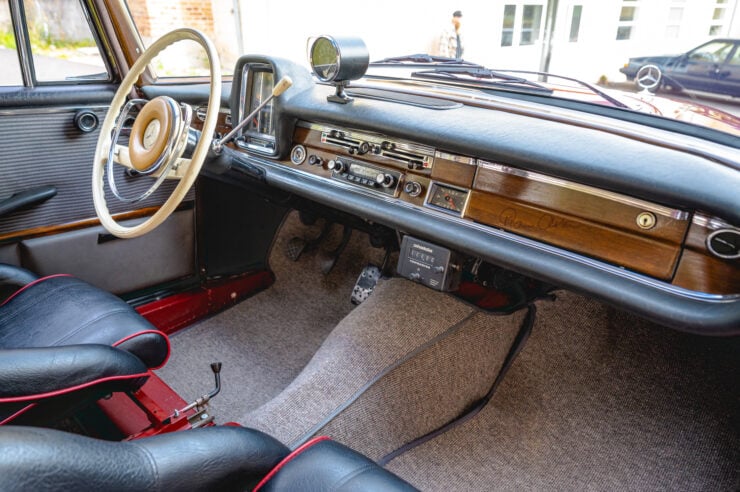
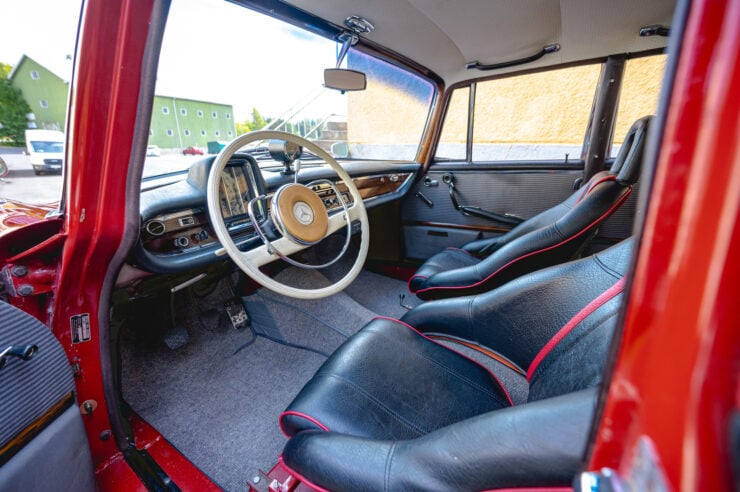
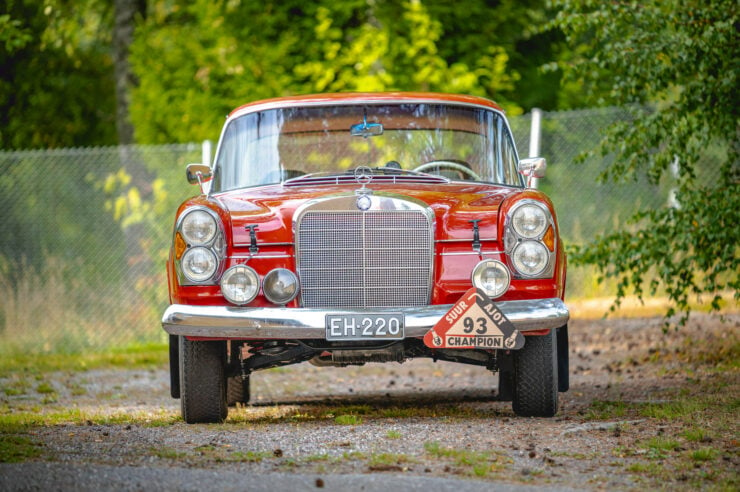
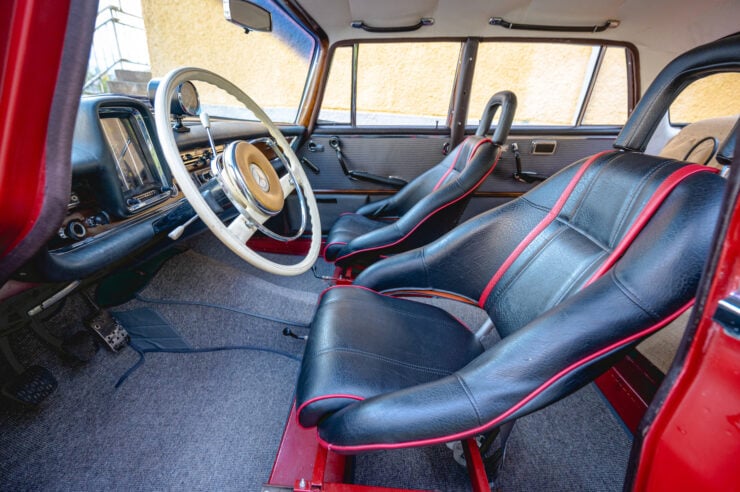
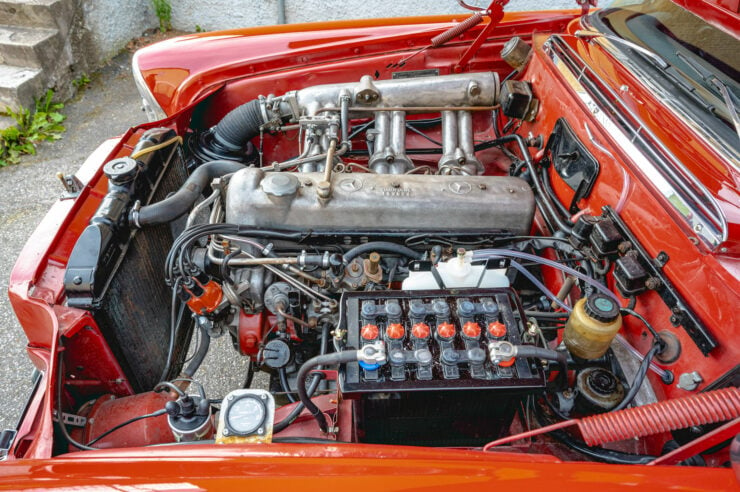
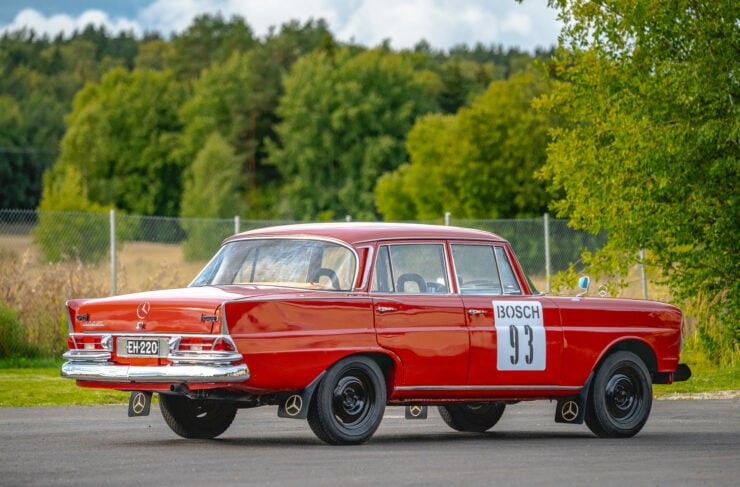
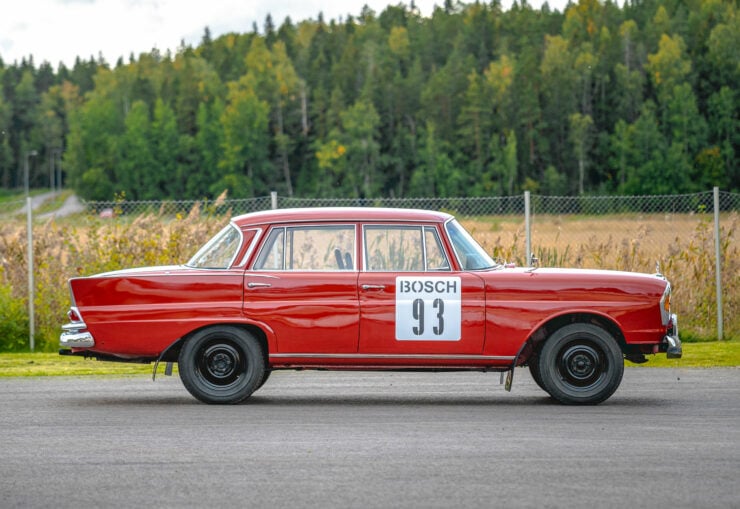
Images courtesy of RM Sotheby’s

